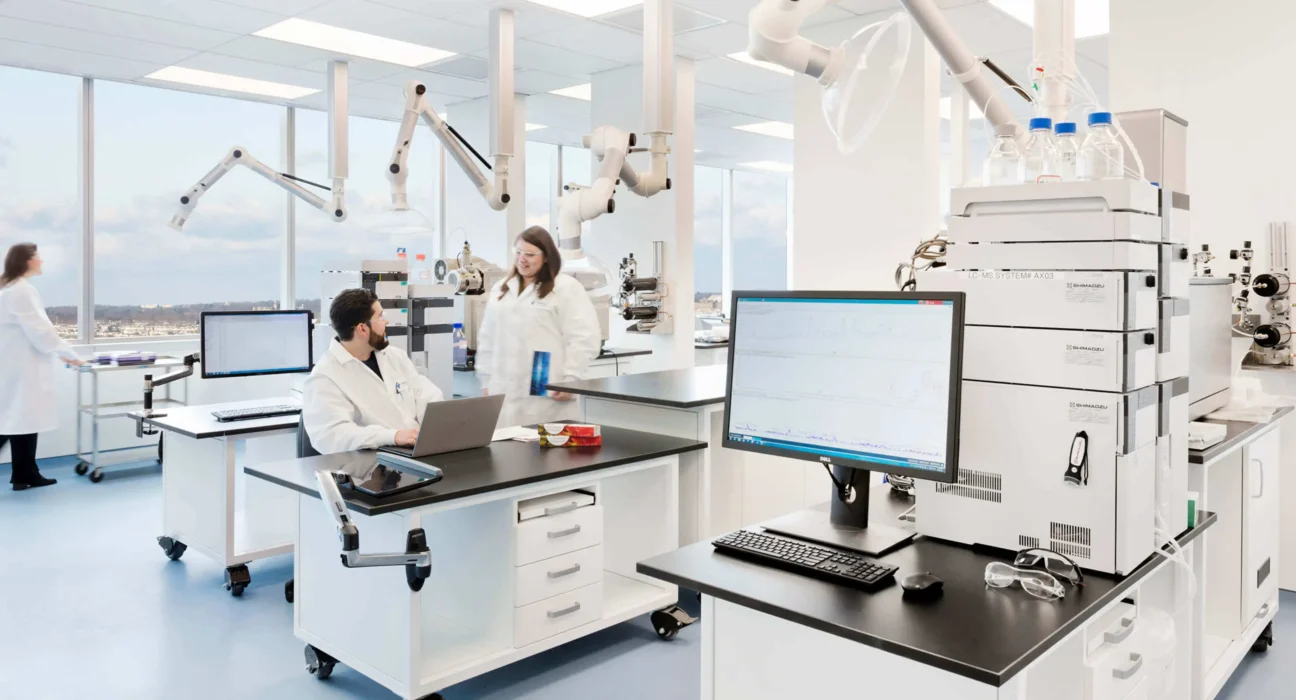Whether you’re a researcher, an entrepreneur, or simply someone with a project in mind, having access to a right testing laboratory is crucial.
The quality of your test results can make or break your venture, influencing decisions and instilling confidence in potential investors or end-users.
Factors to Consider when Choosing a Right Testing Laboratory
Accreditation: Trusting the Standards
One of the fundamental factors in selecting a testing laboratory is its accreditation. Accreditation ensures that a laboratory meets specific quality standards set by independent organizations or regulatory bodies. It serves as a guarantee of competence, reliability, and integrity.
For example, in Singapore, laboratories must obtain accreditation from the Singapore Accreditation Council (SAC) or relevant international accreditation bodies like the ISO/IEC 17025. This ensures that the laboratory adheres to stringent quality control measures and regularly undergoes audits.
When evaluating a laboratory’s accreditation, it’s crucial to verify the scope of accreditation, as different laboratories may specialize in specific testing areas. By choosing a laboratory with accreditation relevant to your project requirements, you can have confidence in the accuracy and reliability of the test results.
Expertise: Knowledge is Power
While accreditation confirms a laboratory’s overall standard, expertise in your specific field is equally vital. Look for laboratories that specialize in the type of testing you require, as they are more likely to possess the necessary equipment, experience, and know-how to handle your project effectively.
For instance, if you need environmental testing for a new sustainable product, a laboratory that specializes in environmental sciences will have the expertise to conduct the necessary tests accurately. On the other hand, if you’re designing a medical device, a laboratory with experience in biomedical testing will be better equipped to meet your needs.
Consider your project’s unique requirements and seek out laboratories with staff who possess relevant qualifications, certifications, or published research in your field. Expertise not only ensures accurate results but can also provide valuable insights and recommendations throughout the testing process.
Reputation: Word of Mouth Matters
In the age of online reviews and social media, reputation holds significant weight when choosing a testing laboratory. Consider testimonies from previous clients, industry professionals, or even online communities to gauge a laboratory’s reputation.
Reviews and testimonials can provide valuable insights into the laboratory’s reliability, professionalism, and customer service. Look for consistent positive feedback, as well as any notable negative experiences that may be red flags. Remember that no laboratory is perfect, but patterns in feedback can indicate recurring issues or exceptional service.
Moreover, seek recommendations from industry peers or colleagues who may have used testing laboratories for similar projects. Their first-hand experiences can help you narrow down your choices and identify laboratories that have a proven track record in delivering reliable results.
Customer Service: The Human Touch
While technical expertise is paramount, the importance of excellent customer service should not be underestimated. Effective communication, responsiveness, and willingness to understand your project’s unique requirements can greatly enhance your testing experience.
Consider how the laboratory handles inquiries, the ease of scheduling tests, and their overall accessibility. Meticulous attention to detail, clear reporting methods, and regular updates on the progress of your project are all signs of a laboratory that values customer satisfaction.
Keep in mind that testing projects often require collaboration between you and the laboratory’s team. A laboratory that actively engages with you, addresses concerns promptly, and provides insightful guidance can contribute not only to accurate test results but also to a smooth and positive working relationship.
Cost: Balancing the Scales
Cost is undeniably a significant factor to consider when choosing a testing laboratory. However, it should not be the sole determining factor. Cheaper options may compromise quality, leading to inaccurate results and potential setbacks in your project.
Instead of merely focusing on the overall cost, evaluate the laboratory’s pricing structure, including any additional fees or charges. Request detailed quotations, ensuring they encompass all necessary tests and services for your project. Well-established laboratories often provide transparent pricing, making it easier to understand and compare costs.
Consider the value that a laboratory offers in terms of their expertise, reputation, accreditation, and customer service, alongside the pricing. It may be worth investing a little more in a laboratory that can deliver accurate, reliable results within your timeline, rather than choosing a cheaper alternative that may pose risks to your project’s success.
Different Viewpoints on Choose the Right Testing Laboratory for Your Project
The Pragmatic Approach
From a pragmatic perspective, choosing the right testing laboratory is all about balancing cost and quality.
In this viewpoint, the cost becomes the primary consideration, requiring a thorough evaluation of the laboratory’s pricing structure.
It emphasizes finding the most cost-effective option while maintaining a reasonable level of quality assurance.
For example, many reputable laboratories offer competitive pricing without compromising on quality.
Their ISO/IEC 17025 accreditation ensures compliance with international standards, instilling confidence in the accuracy and reliability of their test results.
Their commitment to exceptional customer service makes them a favourable choice for those seeking a pragmatic balance between cost and quality.
The Quality Advocate
Taking a quality-oriented perspective, the focus shifts towards maximizing accuracy and reliability, even if it means a higher cost.
Laboratories that place quality at the forefront invest in advanced equipment, highly skilled personnel, and stringent quality control measures to deliver superior results.
For projects where precision is paramount, investing in a laboratory that specializes in your specific testing needs can make a significant difference.
Their expertise, coupled with a reputable accreditation, ensures that the obtained results are not only of the highest quality but also align with industry standards and regulations.
Considering this viewpoint, such laboratories stand out due to their commitment to observing the laid down quality standards.
With their extensive expertise in nanotechnology testing, commitment to staying at the forefront of technological advancements, and solid track record, they can be the ideal choice for those who value uncompromising quality in their testing process.
The Collaborative Approach
The collaborative viewpoint highlights the importance of a strong working relationship between you and the laboratory. Effective collaboration ensures that your project requirements are fully understood, any potential bottlenecks are addressed promptly, and you receive timely updates and insights throughout the testing process.
In this approach, the laboratory’s customer service, openness to feedback, and willingness to go the extra mile play a crucial role. By establishing a positive rapport, you can navigate any challenges together, resulting in a tailored testing process that aligns perfectly with your project’s needs.
Wintech Nano stands as an example of a laboratory that embraces the collaborative approach. Their commitment to outstanding customer service, proactive communication, and relentless pursuit of customer satisfaction fosters long-lasting partnerships that alleviate any potential stress associated with the testing process.
Personal Experiences
While choosing a testing laboratory, I faced a challenging decision when it came to prioritizing cost versus quality.
Initially, I was inclined to opt for a laboratory that offered the most affordable rates.
However, after deeper consideration and seeking advice from industry insiders, I realized that compromising on quality could have significant consequences for my project’s success.
In the end, I chose to invest a little more in a laboratory that specialized in my project’s testing requirements.
The laboratory’s expertise, reputation, and commitment to quality gave me confidence that their results would not only meet but exceed my expectations.
This decision paid off, as the precise and reliable test results not only boosted my project’s credibility but also attracted potential investors.
Conclusion
Choosing the right testing laboratory requires careful consideration of various factors. By taking into account accreditation, expertise, reputation, customer service, and cost, you can make an informed decision that ensures accurate results and peace of mind.
Remember to evaluate accreditation that aligns with your project’s needs, seek out laboratories with expertise in your specific field, gauge their reputation through testimonials, prioritize excellent customer service, and balance cost against the value offered by the laboratory.
Different viewpoints provide alternative perspectives, allowing you to choose the approach that best suits your project’s requirements.
There are only few laboratories that embodies these key factors. Therefore, when choosing the best laboratory for your needs, consider their level of expertise in nanotechnology testing, ISO/IEC 17025 accreditation, commitment to exceptional customer service, and competitive pricing, and if they provide comprehensive solution for all your testing needs.





